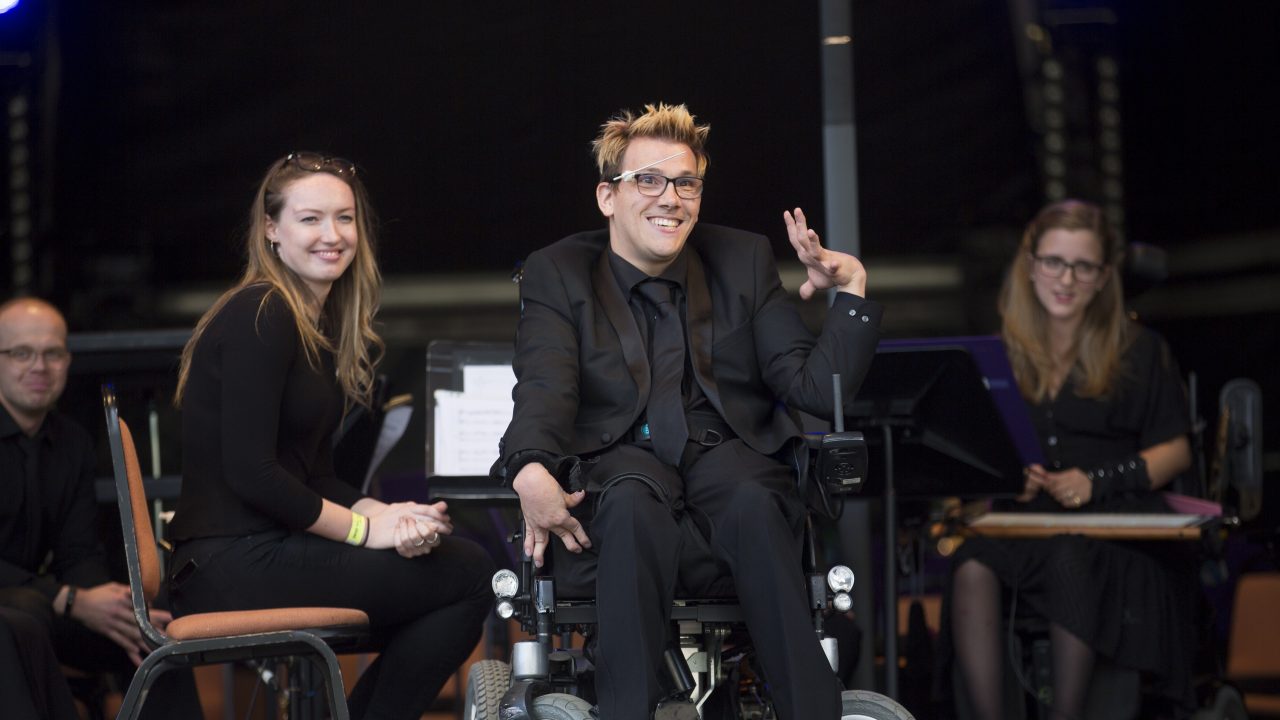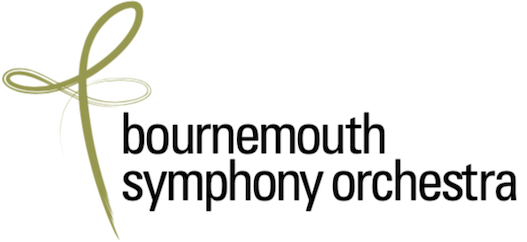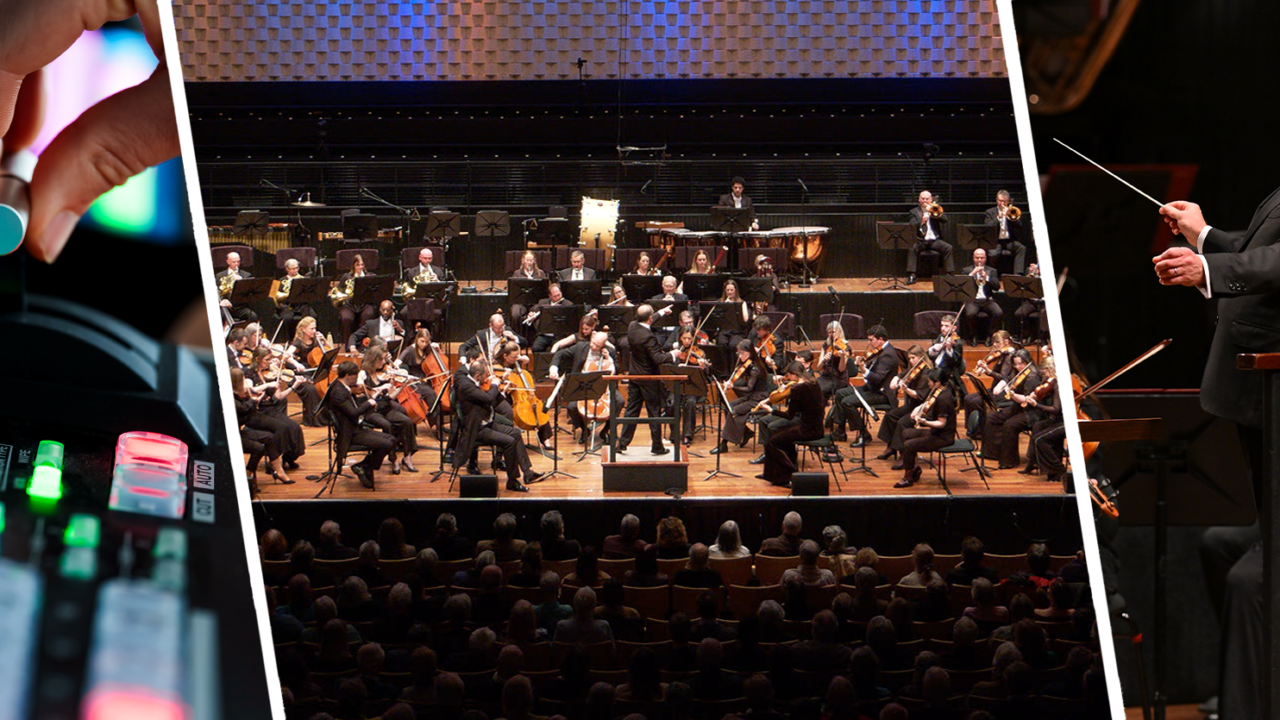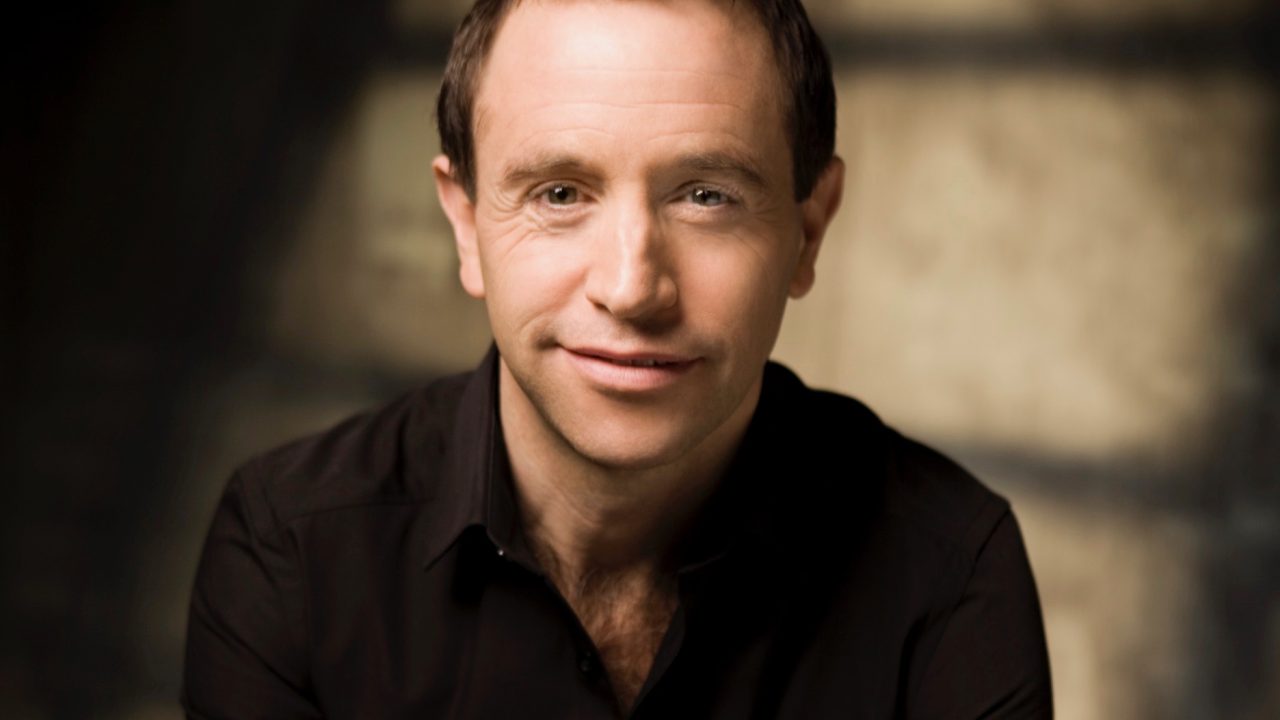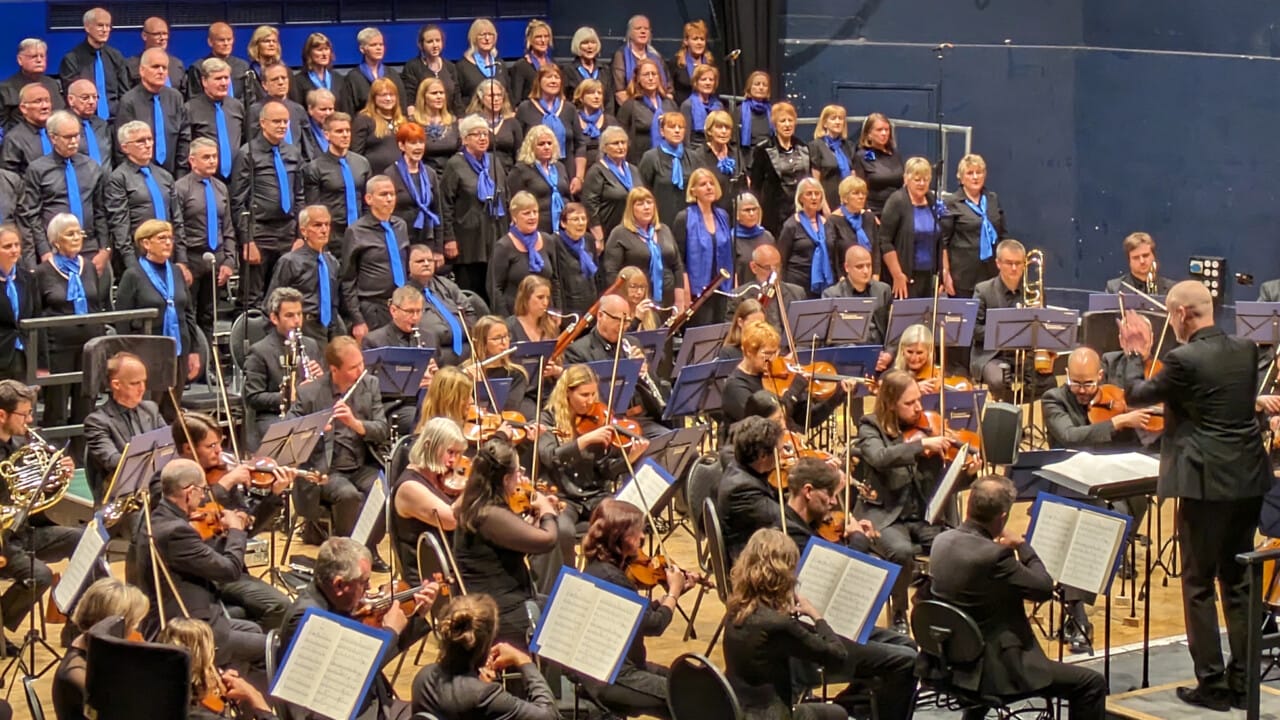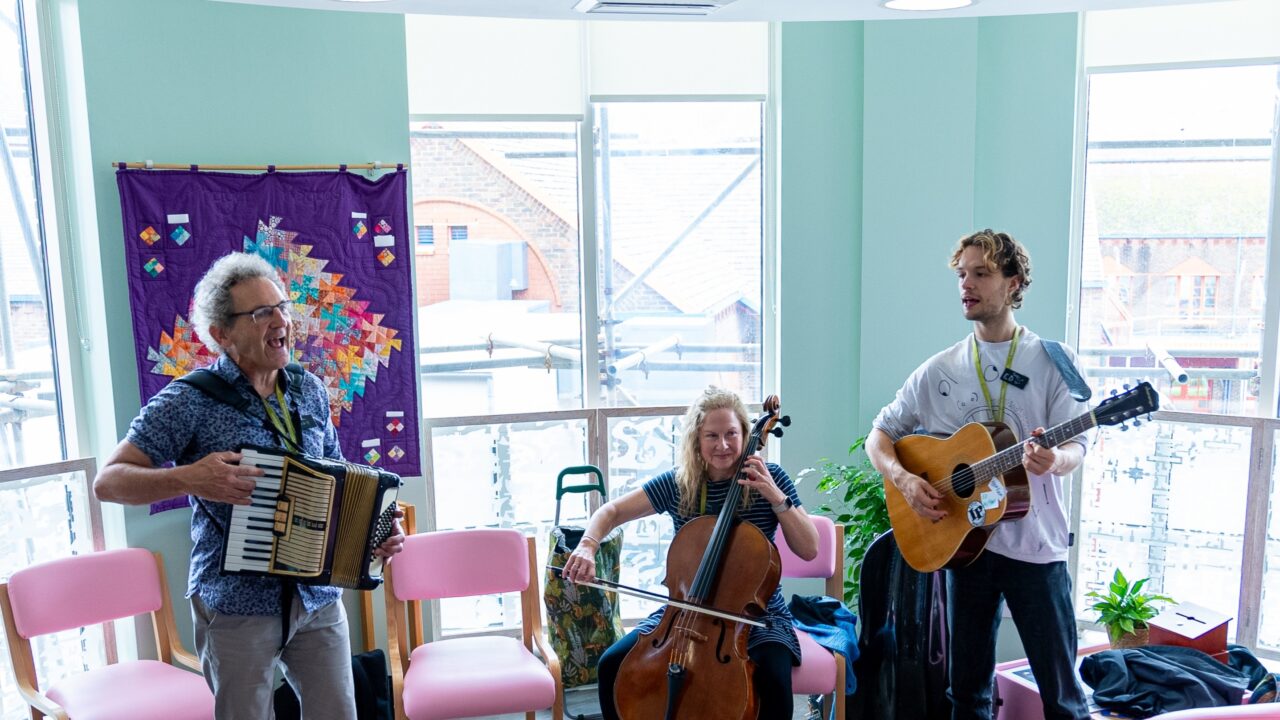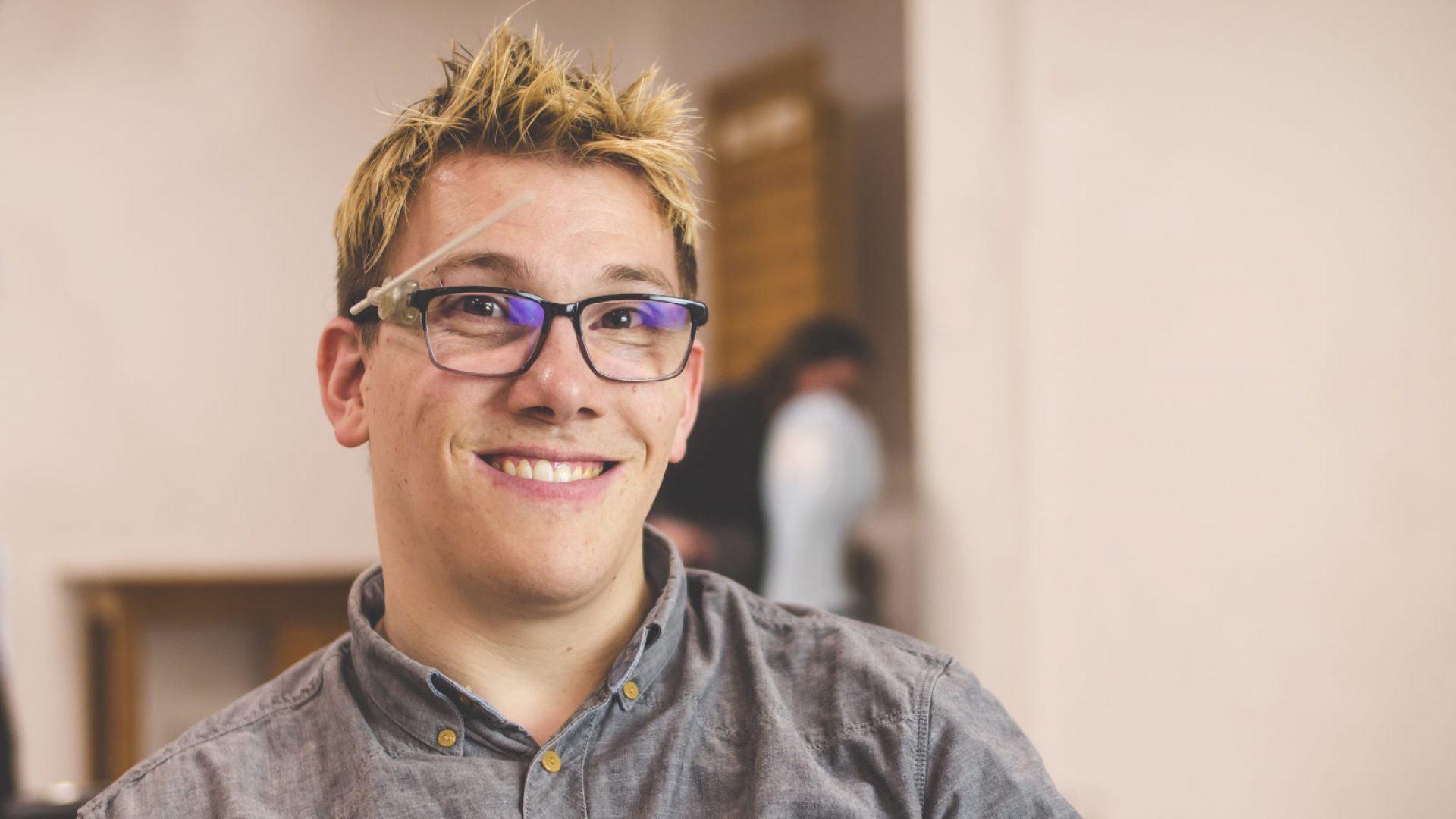What inspired you to become a conductor?
I have had a longstanding desire to play live music since a young age and found it fascinating to watch conductors on TV. Initially, the ability to influence the sound from an orchestra through movement first tickled my interest of conducting. Around the age of eight or nine years, I had my first head pointer made so that I could type using my head. I often bobbed my head whilst listening to music back then, it was a well-played Andrew Lloyd-Webber audio cassette tape which my parents played in the car.
For ages, the conducting remained a fantasy which I often visit but never tell anyone about. In 2011, I applied to volunteer in the London 2012 Olympic Ceremony as a performer leading on to performing in two other London 2012 ceremonies. The experience of performing and rehearsing alongside other dancers, aerialists, and firebreathers reminded me that anything is possible. September 2012 (the month after London 2012 had finished) marked the start of my conducting/ musical journey; starting with nothing but an idea.
What attracts you to music?
Up until 2012, my relationship with music was one way; igniting a ball of fire in the pit of my stomach whenever I listened to music. Music continues to be a serene enclave in which I am able to explore my raw emotional landscape; regulating my perspectives of reality.
Through developing my conducting and composition practice, my relationship with music has become two way; instead of being emotionally led by a piece of music, I have started to express my inner feelings through either physically influencing sound or writing my personalised pieces. As with life, my engagement with music is a continuous learning and exploration process constantly integrating my values as a human being. Depending upon the perspective being taken, music can be said to be free of semantics which are found in most spoken languages. This liberation gives the ability to address inner truths which are common in all of us.
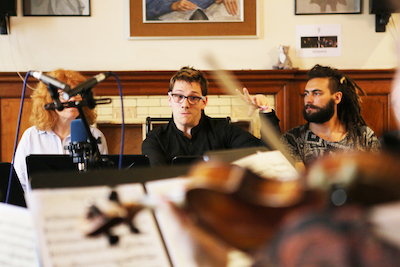
What are you most looking forward to about the Change Makers project?
The challenges of helping to create something new which will open up music playing to a wider range of musicians. It sounds cliché, but meeting and working with new people and doing something which will truly help others develop. This is a massive learning curve for me and I look forward to getting to know others who will inspire and teach me new things, professionally as well as personally.
Since its inception, Lisa Tregale, Jenny Wingfield, Jackie Tanner and I have always acknowledged that this project is very much about two -way learning between everyone involved.
What does this opportunity mean to you?
This project is perfect in terms of timing, content, and most importantly, people! Conducting with one’s head is unique and as such the training I need to develop as a conductor just isn’t readily available.
This project has been tailored to my training needs which is perfect. The journey of getting to this point has been fun but challenging. The last four years have been about finding those opportunities to develop my practice as a conductor and musician. Although I quickly learnt to ignore setbacks and other people’s doubts (cue violins!), having the BSO’s backing and belief in my abilities as a young conductor is comforting.
What aspect/s of setting up on ensemble are you most looking forward to? All of it! There are so many aspects to this project meaning its challenging to highlight a few. However, I’m going to have go… It’s uniqueness! The BSO are the only mainstream orchestra in the U.K. who are setting up a disabled-led ensemble. This will mean exploring new ways of doing this; adapting customs, working with players who potentially play instruments which are new to the mainstream, and developing wider audiences for the BSO.
This is my first leadership role to which will no doubt question how I do things in responding to new challenges. There is a particular motivation for me to progress with the BSO because of their reputation and commitment to making music more accessible to people who have disabilities without creating a specialised strand. I feel that my development pathway would therefore fit BSO’s approach and way of working.
I am incredibly excited about the prospect of sharing my experiences as a person with disabilities and hope this will help engage even more audiences and talent. I see this very much as a two-way arrangement and learning process. I have begun a never-ending journey of learning to harness this liberation to express my ideas and to genuinely inspire positive progression in others. Cue the harps!
Is there a particular skill set that you are looking forward to learning or enhancing during the Change Makers project?
One of the many opportunities I will have from completing this project is the experience of working in real life environments as a conductor/ arts leader. In doing so, I will be pushed and thrown into new experiences and tackling the challenges involved in putting together a new ensemble and facing the unknown. Although it may sound paradoxical to some, having a disability has been an opportunity to develop people and project management skills. As well as being a full time employer, I have grown up with the expectation of finding alternate methods to achieve things.
Due to the cuts in Access to Work (the government scheme setup to help people who have disabilities into employment) and the way in which the benefit system operates, I have been unable to seek employment and have therefore reluctantly been on benefits since graduating from university with a few exceptions. Having the opportunity to train with the BSO will be a way of developing to a standard allowing me to find a way out of this benefit loop.
What advice would you offer to an aspiring young artist?
Achieving a creative goal is always a challenge and you will meet dead ends and people who doubt your abilities. However, if you know what you want to achieve, achieve it. Be ready to listen to any negative comments and how you can use them to your advantage, even if you don’t agree with them. In moments of frustration, rejection, or anger, try to think about why you’re responding with these or similar emotions. Stick with what you’re passionate about and which feels right to you.
Gallery
